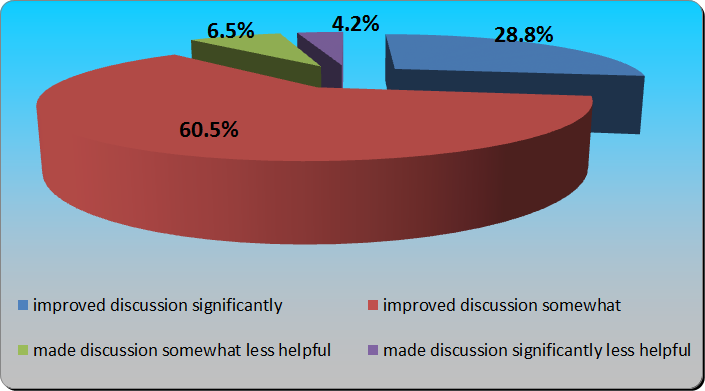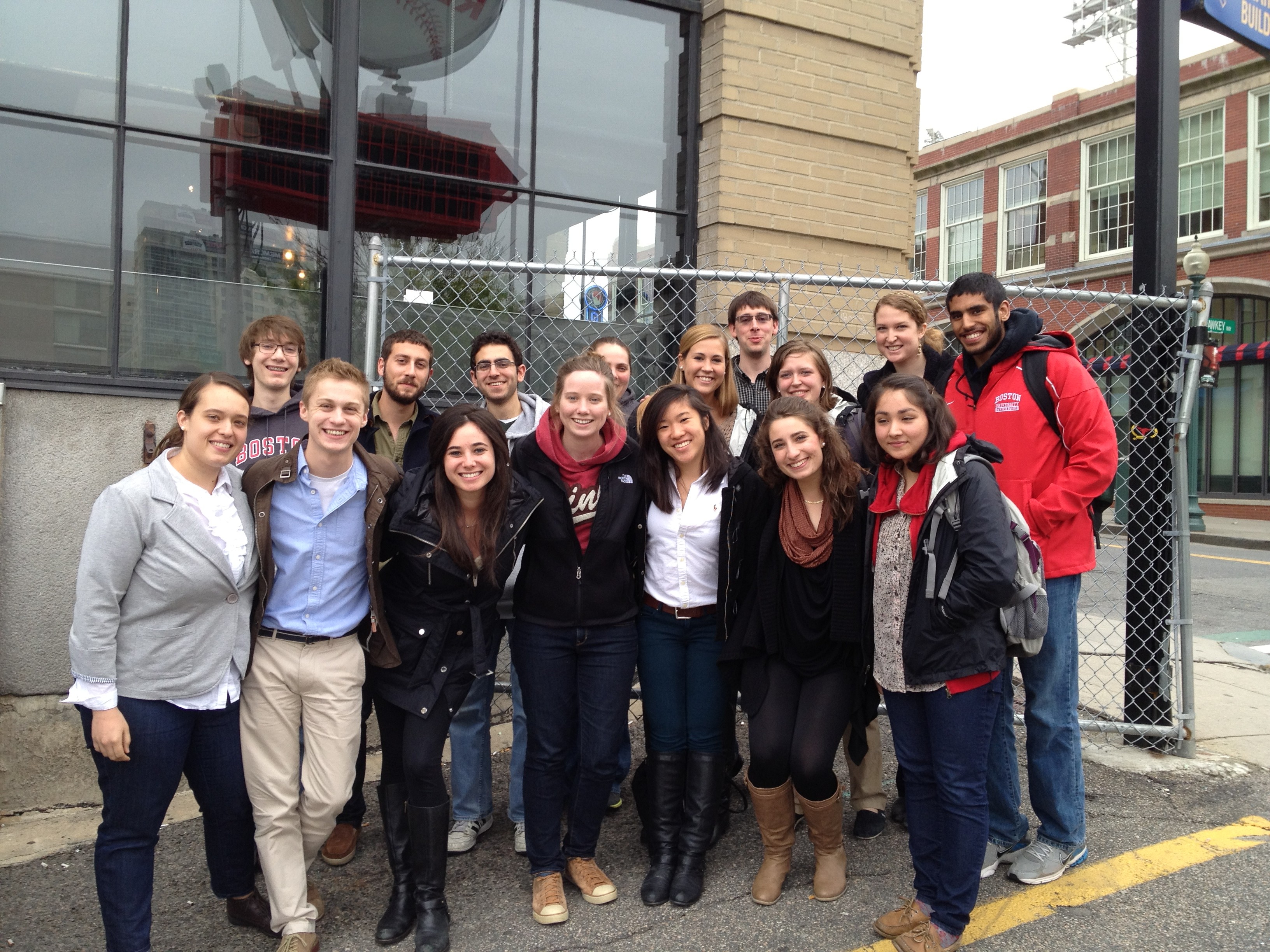The Learning Assistant (LA) program was developed at University of Colorado, Boulder. In the fall of 2010, I traveled to Boulder for a workshop on implementation, funding, justification, and sustainability of the program. I left wondering why every college and university isn’t using it. The goals of the U of C, B project are
- To recruit and prepare talented science majors for careers in teaching
- To engage science faculty in the recruitment and preparation of future teachers
- To improve the quality of science education for all undergraduates
- To transform departmental cultures to value research-based teaching for ourselves and for our students
The general idea of the LA program is that high performing students return to assist in teaching the course. I’ve seen implementations for LAs in lecture, laboratory, recitation, and outside of class. LAs don’t replace faculty/staff/teaching assistance, but instead supplement them. LAs are trained both for education through a STEM education pedagogy course and for course content through meetings with faculty. It is apparent that LAs are not much use if a course is taught by only traditional lecture, as the LAs would have little to no role to play. This is part of the feedback the LA program has in motivating reformation of classroom into something more active and engaging.
The program came largely out of the School of Education with the idea of introducing the idea of STEM education as a career for talented undergraduates, but the student, faculty, and departmental outcomes are so valuable. The program is designed such that the goals support each other (see the figure above). Below I’ll go through all the steps we took in General Chemistry (CH101) at Boston University on implementing the program and the outcomes we have seen.
Recruitment
For our first semester implementing LAs, we recruited from the previous year students who had achieved a grade of B or better. The idea being that those students have a solid grasp of the material. Our initial request for applications was very successful, with 100 applicants for 10 job slots. Because communication skills and personality are so important to LAs, 30 applicants were chosen for interviews with the staff. Another lesson we learned was that it isn’t always the highest performing student that makes the best LAs. LAs provide role models and can sympathize with the students so having LAs that struggled themselves shows students can succeed even though the course is difficult. Our first group of LAs was diverse.
- gender: 7 females, 4 males
-
majors: human physiology, nutrition, biology, neuroscience, neurobiology, japanese, chemistry, physics
- year: sophomores to post-baccalaureate
Responsibilities
At BU, the LA responsibilities (and weekly hours spent) are
- Attend lecture (3)
- Attend staff meeting (1)
- STEM education course (2)
- Assist in recitation sections (3)
- Preparation (1)
LAs attend lecture as if they were a student. This is important for the LAs because it reenforces the content and allows them to master the material more deeply. They are also available in for lecturers to implement in class work. Challenging problems are presented in the lecture and LAs are able to roam the room helping students.
LAs assist in three recitation sections each week. These are 50min small group (~20-25 students) lead by a teaching assistant or staff member. The recitations were transformed to be group work sessions, where in the past they had been another lecture. This transformation was possible because the LA provided another knowledgeable person in the room to assist the student groups.
Training
The LAs must register for a 2 credit course in the school of education on STEM education (SC521). The goal of the course is to provide a pedagogical background in education for the LAs so they can assist students effectively. This course is taught by Dr. Garik who specializes in STEM learning. In addition to Dr. Garik, Dr. Nic Hammond and I assisted in teaching the course.  The team style of teaching was important because Dr. Hammond and I were familiar with what the LAs were teaching and what they were seeing from the students. We were able to provide the context for the pedagogy Dr. Garik was providing.
The course consisted of weekly readings on many topics including meta-cognition, formative assessment, argumentation, misconceptions, and working with small groups. Much of the material was provided freely by U of C, B. LAs wrote weekly reflections both on the topics of the course as well as how they were applying the skills in recitation. Most class sessions were fruitful discussions were the LAs and staff tried to see how best to apply lessons to the classroom and how best to support the general chemistry students.
Additionally, students meet with faculty to discuss the content. This gives LAs a chance to ask questions before they see the students. It also provides a change for faculty to vet any material they are considering to student viewpoint that is not currently in the course. These meeting also have shown that the LAs are capable of helping develop material for the course.
Benefits
The LA program has so many benefits its hard to think of them all, but here is the list of benefits LAs bring I’ve come up with based on each of the participants. For more benefits see the U of C, B papers.
- Students
- An approachable, knowledgeable source
- Role model for success
- Allow transformation of recitations into an active learning experience
- Increased performance
- Lowers student/teacher ratio
- Learning Assistants
- Training in learning that can be applied to their own coursework
- Stronger background in introductory material that benefits future coursework
- Letters of recommendation based on close observation
- A chance to see if education is a career path
- Improved science communication skills
- Teaching Assistants
- Support in recitation
- Mentoring experience
- Feedback on teaching pedagogy
- Faculty
- Support for transforming a course
- Student view point
- Constructive feedback for material
- Department
- Provides a programmatic experience for science education
- More support for introductory courses
- Better mastery of material for students going on in science
- University
- Involvement in STEM education initiatives
- Connects multiple departments
- Supports introductory courses to lower attrition
Feedback
The LAs took their job seriously and put so much effort into improving on their teaching skills. They were very reflective on what was and what was not working.  Here is an LA comment from the this semester.
…teaching is the art of drawing out discovering in a student. I believe that the most important part of teaching is not to make sure the student can simply restate the information, but that the student can apply that information to find something new. Teaching should not be a one-way street, in which information flows form the teacher to the student.  Teaching should be more analogous to a park with multiple trails, in which students can teach each other, learn from each other, and even discover a new ‘ path’ of knowledge.
The students at the end of the semester were polled with the following question: “This semester we introduced the Learning Assistant program in discussion sections as another resource to help answer your questions. Compared to last semester without a Learning Assistant, having an LA this semester … “ You can see from the answer below the students find LAs almost universally positive.
Future
The spring 2011 inaugural LA program was a great success. For fall 2011, biology and physics are implementing LAs and math and engineering are looking into it. For chemistry, we are now considering how to use are experienced LAs even more.
Acknowledgement
The Boston University implementation of the LA program was a big endeavor. I’d like to acknowledge all the people that were involved: Dr. Nic Hammond, Dr. Dan Dill, Dr. Peter Garik, Dr. Binyomin Abrams, Natalya Bassina, the teaching fellows, the department of chemistry, and the staff and faculty at University of Colorado, Boulder.



